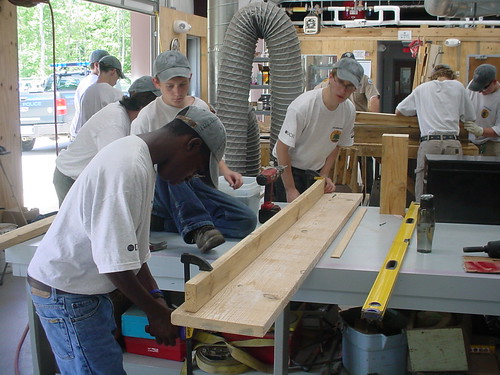Okay so this will probably give away how ancient I am, but when I was a girl Alan Sherman did a song called A Letter From Camp: “Hello Muddah, Hello Fadduh. Here I am at Camp Granada. Camp is very entertaining. And they say we’ll have some fun if it stops raining.” It actually won a Grammy for best comedy song in 1963 (maybe I was still in utero). If you are not familiar with the song it is several messages from a young boy at Camp Grenada to his parents. In the beginning it is clear he is miserable and homesick but things turn around before the end of the song (after it stops raining).
I never went to away camp for the summer. I’m not sure any of my friends ever did either so possibly this was something that appealed to me about the song. My sense was that summer camps were very expensive or there were some set up for disadvantaged kids. Then of course there was one movie after another – comedy or horror – about nightmare camp experiences.
We don’t have a summer camp program at Virginia State Parks. What we have is a Youth Conservation Corps (YCC) program. The difference? Instead of fun all the time, the YCC is really hard work. The youth, aged 14-17, perform conservation and similar projects in the park for about 8 hours a day. In the evenings and weekends, they participate in educational programs about the environment, the natural world, and local culture, or participate in various outdoor recreation activities, or visit local historical or cultural attractions.
Like a summer camp, it is residential, the lodging fairly primitive (rustic buildings), and there are Supervisors you might equate to camp counselors – most of college age. Our program runs for three weeks. The other difference – for most summer camps the parents shell out a lot of money for their kids to attend. We PAY a program completion stipend of $500 to YCC participants. Trust me, they earn every penny!
I am not sure what kids learned from their summer camp experiences but I have first hand knowledge of what happens to the youth that attend our program. Gaston Rouse, our Director of Volunteer Services and retired Army Colonel, runs the program. I like to say “You can take the man out of the military but you can’t take the military out of the man.” That’s Gaston. The program is structured and the supervisors expect and get the respect of the participants or they go home. While we occasionally have a young person decide pretty quickly the program isn’t what they expected (usually due to being homesick), most of the attendees stay the course. By the start of the third week, those kids are determined to make it through to the end for their check. Gaston and I try to visit each and every crew during the sessions so I meet a lot of the participants. While it is hard work and sometimes even grueling, we have a high percentage of attendees apply to come back a second, third or even fourth year.
We try to have the youth complete one project from start to finish so they see they made a difference. At the formal graduation held on departure day, the youth are excited to show their parents what they accomplished. This program is valuable to us because of the work that gets done and because it introduces young people to the value of supporting parks. We usually find several young people each year who even decide to focus on a career in natural resources.
Parents have told us they sent us their son or daughter and got a different person back – one that seems more willing to do chores or has a new take on personal responsibility and doing for themselves. The youth prepare meals, clean their living quarters, do their own laundry. They learn how to use tools, how to work as a team, how to get along with people from different backgrounds or cultures. They learn the satisfaction of working hard for a goal. The work is physically demanding. It’s summer so it’s hot. And there are bugs. Lots of bugs.
We have an all on line application process and primarily make selection decisions based on the way the questions are answered by the young person. We offer the program at selected parks in two three-week sessions. In 2010 those are June 20-July 10 and July 18-August 7. You can select a session preference but not the specific park. We make every effort to assign successful candidates to a park outside of their immediate geographic area. But we also try to avoid parents having to drive across the state to drop off their child or pick them up. Based on the parks, sessions, and whether the program is male or female, sometimes we can’t meet those goals.
The program provides lodging, food, uniform shirts and hat, backpack, water bottle, first aid kit, goggles and work gloves. And, the $500 program completion stipend.
If you are interested in the program, I encourage you to read the details carefully on our website before starting the application. Also remember the answers to the questions are important. We have a non-negotiable, no exception deadline of noon on April 12, 2020.
You might also enjoy reading some of the blog posts about last year’s program. Many of the posts about specific park crews include a slide show. The pictures give you a pretty good idea of what the pictures are like. Supervisors post pictures on Flickr as the program progresses so parents and friends can see what the young people are up to.
